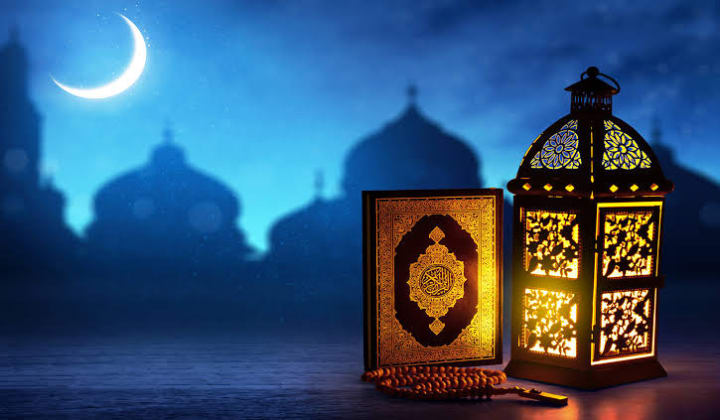
Ramadan is the ninth month of the Islamic calendar, and it is a time of spiritual reflection, fasting, prayer, and community. Muslims around the world observe Ramadan by abstaining from food, drink, and other physical needs during the daylight hours, from dawn to sunset. It is considered to be one of the Five Pillars of Islam, which are the basic acts that Muslims are expected to fulfill.
Ramadan is a time of great importance for Muslims, and it is a time of spiritual renewal and growth. It is a time to purify oneself, both physically and spiritually, and to strengthen one's connection with God. Fasting during Ramadan is believed to be a way to increase one's empathy and compassion for those who are less fortunate, and to develop a deeper understanding of the struggles of others.
During Ramadan, Muslims are encouraged to engage in additional acts of worship and good deeds, such as giving to charity, reading the Quran, and spending time with family and friends. It is also a time for self-reflection and introspection, as Muslims are encouraged to examine their own behavior and seek forgiveness for any wrongdoing.
The fast of Ramadan is a rigorous practice, and it requires discipline and dedication. Muslims are required to abstain from food and drink during the daylight hours, and they are also expected to refrain from smoking, sexual activity, and other behaviors that are considered to be sinful. The fast is broken at sunset with a meal known as iftar, which often includes dates and water, followed by a larger meal.
The observance of Ramadan varies from country to country and from community to community. Some Muslims choose to spend more time in prayer and reflection, while others may participate in community events and social gatherings. Many mosques offer additional services during Ramadan, such as daily Taraweeh prayers and lectures on Islamic topics.
Ramadan is also a time for families to come together and celebrate. Many Muslim households prepare special dishes for iftar and suhoor, the pre-dawn meal that is eaten before the fast begins. In many countries, street vendors and restaurants offer special foods and drinks during Ramadan, such as samosas, juices, and sweets.

Ramadan is also a time for charity and giving. Muslims are encouraged to give generously to those in need, both within their own communities and around the world. Many mosques and charitable organizations organize fundraising drives during Ramadan to provide aid to the poor and needy.
The end of Ramadan is marked by a celebration known as Eid al-Fitr, which is one of the most important holidays in the Islamic calendar. It is a time for families to come together and exchange gifts, and it is also a time for forgiveness and reconciliation. Muslims are encouraged to make amends with those they may have wronged during the past year and to seek forgiveness from God.
In conclusion, Ramadan is a time of spiritual reflection, fasting, prayer, and community. It is a time to purify oneself, both physically and spiritually, and to strengthen one's connection with God. It is also a time for families to come together and celebrate, and for Muslims to give generously to those in need. Ramadan is a time of great importance for Muslims around the world, and it is a time to renew one's commitment to faith, compassion, and service to others.
Ramadan is not only a time for individual spiritual growth, but also for building and strengthening community bonds. Muslims are encouraged to break their fast together with family, friends, and even strangers, and to share their blessings with others. This practice of breaking fast together is known as iftar, and it is an opportunity for Muslims to come together and share in the blessings of Ramadan.
Iftar meals are often elaborate affairs, with a variety of foods and drinks being served. In many Muslim-majority countries, iftar meals are traditionally opened with dates, which are followed by a range of savory and sweet dishes. Some common dishes that are served during Ramadan include samosas, biryani, lentil soup, and kunafa, a Middle Eastern dessert made with cheese, semolina, and syrup.
Another important aspect of Ramadan is the recitation of the Quran. Muslims are encouraged to read the Quran during Ramadan, and many mosques organize Quranic recitation sessions known as Taraweeh. These sessions are typically held after the night prayer and can last for several hours. The recitation of the Quran is considered to be a powerful act of worship, and it is believed to bring blessings and spiritual growth to those who engage in it.

Charity is also an important part of Ramadan. Muslims are encouraged to give generously to those in need, both within their own communities and around the world. This is often done through the payment of Zakat, a mandatory charity that is calculated based on one's wealth. In addition to Zakat, Muslims are also encouraged to give voluntary charity, known as Sadaqah. This can take many forms, such as donating to a mosque or charitable organization, providing food and clothing to those in need, or simply being kind and generous to others.
Ramadan is a time of great spiritual significance, but it can also be a challenging time for some. The fast can be difficult, especially in hot and humid climates, and those who are ill, pregnant, or breastfeeding are exempt from fasting. However, these individuals are encouraged to make up their fasts at a later time, or to pay fidyah, a financial penalty that can be used to provide food to those in need.
In recent years, Ramadan has taken on a new significance in the wake of the COVID-19 pandemic. Many Muslim communities have had to adapt their Ramadan observances to comply with social distancing guidelines and restrictions on public gatherings. This has led to the cancellation of many communal iftar meals and Taraweeh prayers, and has forced Muslims to find new ways to connect with one another and observe Ramadan from home.
Despite these challenges, Ramadan remains a time of great spiritual significance for Muslims around the world. It is a time for self-reflection, community building, and service to others, and it is a reminder of the importance of compassion, generosity, and faith. By observing Ramadan, Muslims seek to deepen their relationship with God and to become better versions of themselves, both as individuals and as members of a larger community.
About the Creator
Taimoor Hassan Alvi
Writer, fictional storyteller🤷🏻♂️from a small town🏞️live in nowhere on this small world🌍in a big galaxy🌌………..






Comments
There are no comments for this story
Be the first to respond and start the conversation.